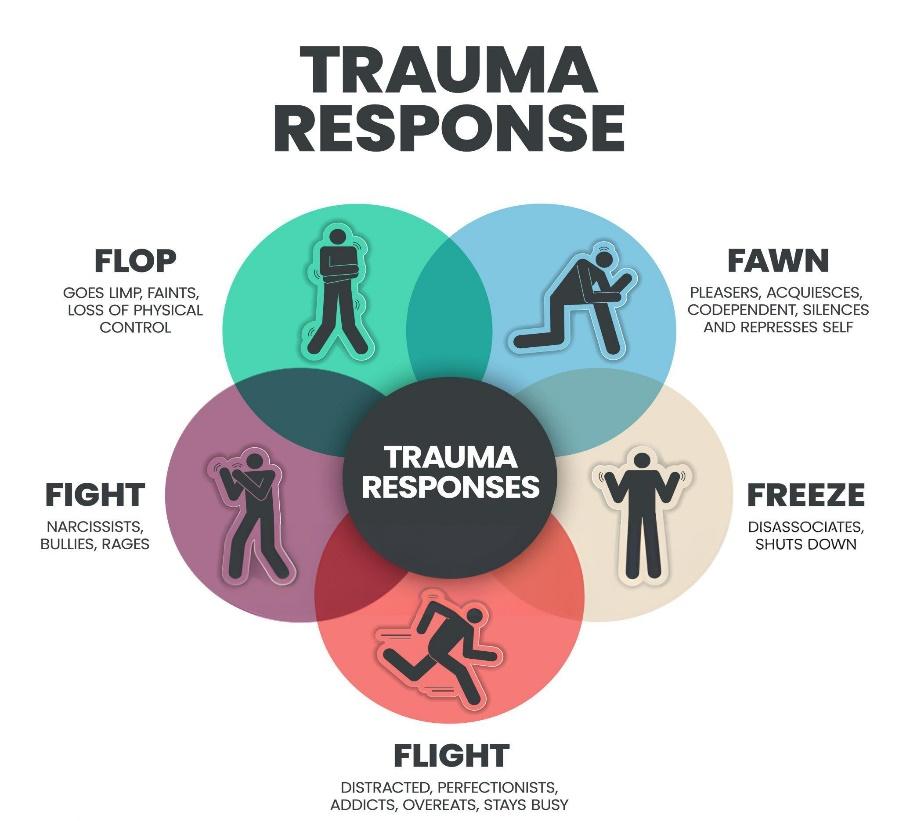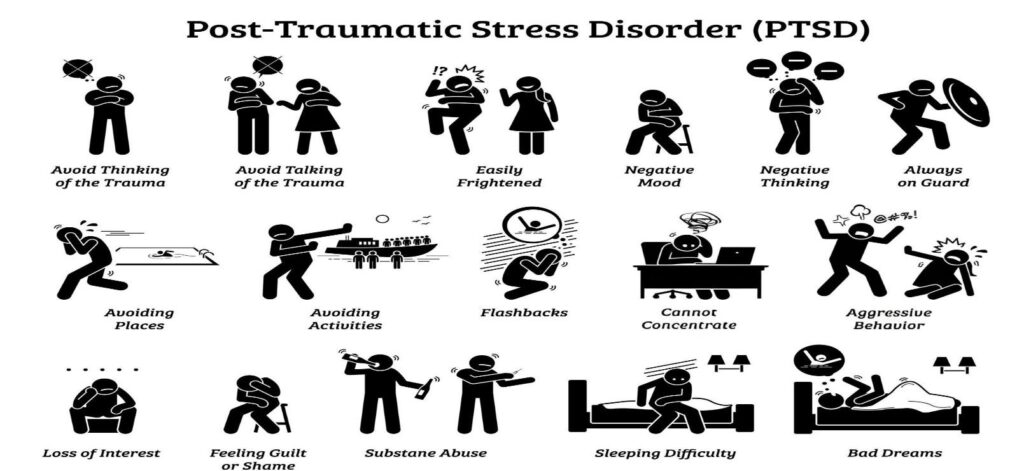
This term trauma refers to the condition in which a person goes through a series of emotional and psychological events or a series of disturbing events. These events can be normal human behavior and disturb the normal functions of life and the ability to cope with the normal events of daily life. This can have a lasting impact on human physical, mental, and emotional behaviors but with the proper support and therapy they can overcome the symptoms of trauma.

SYMPTOMS;

Post-traumatic stress disorder as the word itself indicates majority people are exposed to it due to trauma anytime in their life. It is the mental condition in which a person is triggered by any horrifying event in the past either witnessing it or experiencing it. People who went through traumatic events may face difficulty in coping with the people and adjusting to the new people but with time they get adjusted to all.
Symptoms
PTSD symptoms may not appear right after the trauma but after months or can appear also after the year in which a person finds it difficult to communicate with people which makes it difficult for them in their relationship. They usually avoid people trying to hide, negative changes in their moods and way of thinking. They also have flashbacks and nightmares and all these symptoms vary from person to person. (Kessler, 2017)
PHYSICAL TRAUMA;
This is the type of trauma that is due to physical injuries that can be an accident or any violence e.g. road accidents, burns, or physical assaults.
PSYCHOLOGICAL TRAUMA;
This is the type of trauma that is due to any emotionally shocking event like the death of any loved one, violent witness, any natural disaster
DEVELOPMENTAL TRAUMA;
This is the type of trauma that happens in childhood and has a lifelong effect on a person’s behavior, personality, and physical health.
NUTRITIONAL THERAPY:
Nutritional therapy is important in preventing the causes of trauma and the deterioration that is occurring due to it. Therefore it is important to figure out the nutritional needs of traumatized patients. The nutrients that are beneficial for trauma patients are PROTEIN, ANTIOXIDANTS, AND OMEGA 3 FATTY ACIDS These nutrients help the patient to reduce the inflammation in the body, prevent muscle wasting, and support the immune system which is all-important for the recovery of the patient.

Diet has a major role in curing symptoms of trauma and PTSD.
Taking at least 3 meals that include healthy options such as proteins, omega 3 fatty acids, essential vitamins like vitamin B, and vitamin D, and some minerals like magnesium and zinc is important for the body to function optimally. While skipping meals can cause more stress to the body.
Evidence shows that chronic inflammation can affect mental health. Food that includes antioxidants such as vitamins C and E can reduce inflammation also anti-inflammatory foods such as ginger, broccoli, turmeric, cinnamon, and fatty fish can reduce inflammation and hence support stress management.
Water is also an important component in managing stress as dehydration can cause stress to the body as every cell needs water for its activity to carry away toxins and metabolic wastes.
Oxidative stress caused by toxins, industrial chemicals, pollution, and smoking can cause stress and inflammation and cause damage to the brain. Antioxidant vitamin E is potent which shows a positive impact in patients with brain trauma.
Whole foods are richer in nutrients than refined foods. Refined foods cause extra stress to metabolize for example sugar, refined flour
Hence, the major goal is to have a balanced diet that cannot increase the stress but rather manage the overall stress and healthy well-being.
Some other factors also help in managing trauma including;
Sleep is also a major component in managing trauma that restores the body functions and manages the factors that are causing less sleep like taking herbal teas before bed and avoiding eating before going to bed as it causes your body to work when it’s time for resting.
Physical activity is a key component in reducing PTSD according to the surveys as people with PTSD can have cardiological issues. So physical activity and exercise an effective therapies for managing PTSD. (Carron B. D., 2019)
It’s common these days that people around the world are exposed to trauma and nutritional support is very important for these people. Following the nutrition mentioned above requirements during trauma can support the patient’s health after trauma. It is very important to know what you eat and ask yourself how it is affecting your body whether it is causing stress to the body or releasing it. Eliminating the additional stress caused by inappropriate food can have a positive effect on mental and physical stress. Help people who suffer from this to get a good therapist to avoid them from getting into bad companies or drugs.
For a detailed nutrition plan, please refer to the book titled “1-Week Recipes with a Grocery List to Improve Trauma and PTSD.
Wilson, D. R. ( 2022). Trauma and PTSD. What is trauma?